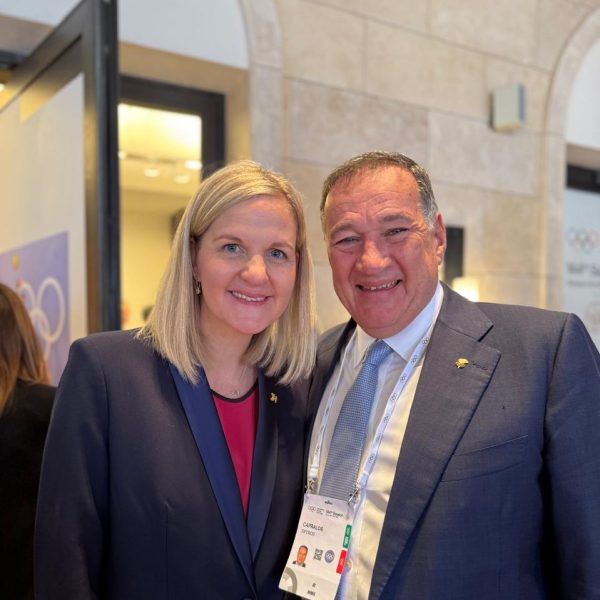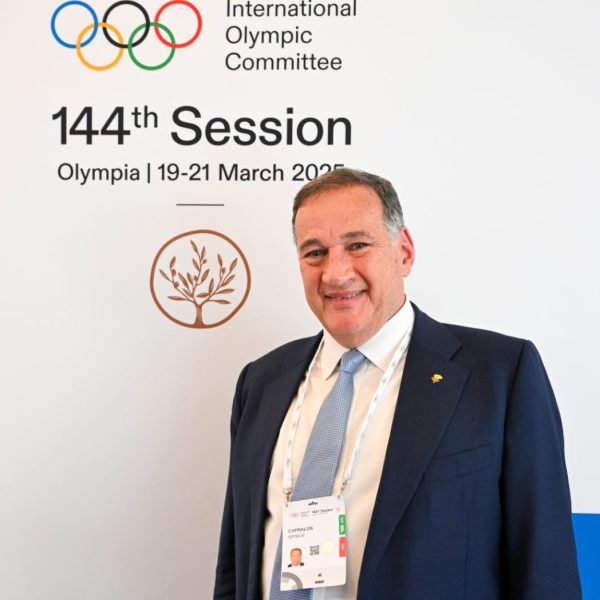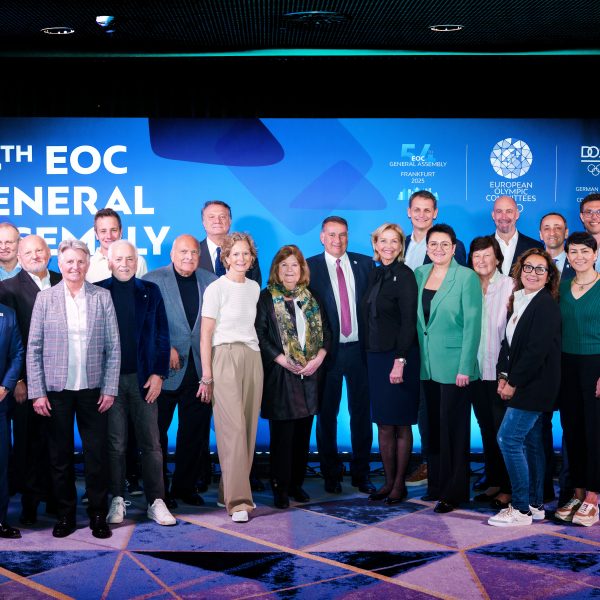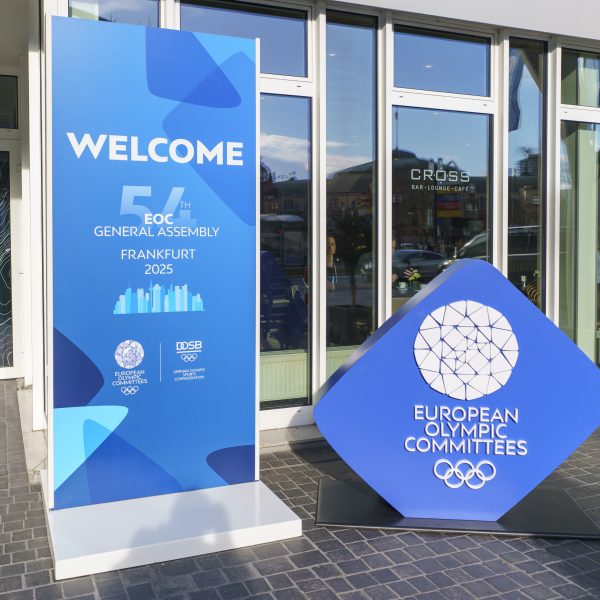European Olympic Committees (EOC) President Spyros Capralos attended the first meeting of the “Olympic Committees of European Approaching Carbon Neutrality” (OCEAN) Project in Brussels on 22 February.
The aim of OCEAN, which is co-funded by the EU and is the biggest project the EOC EU Office has ever run, is to empower the 18 European National Olympic Committees who have signed up, to measure their carbon footprint and then define tailored carbon reduction strategies in order to reduce their carbon emissions.
Each NOC will have a Climate Action Officer trained so that they have the skills and knowledge to help their countries make an impact in this regard.
Officials from the EOC EU Office, the International Olympic Committee, the Association of National Olympic Committees, Öko-Institut, the European Commission and the 18 NOCs were all in attendance at the kick off meeting ahead of the first training courses for the Climate Action Officers on 23 and 24 February.
With the OCEAN project, the EOC EU Office is answering pressing demands for sport organisations to reduce their impact on the environment and taking up the sport world’s responsibility to lead by example in the field of climate action.
A key theme throughout the newly-adopted EOC Strategic Agenda 2030 is sustainability and in his opening speech, President Capralos praised the project’s partners for showing that Europe as a continent is serious about taking climate action.
He said: “It is incredibly pleasing to see the attendance here today. It is a sign that we are all taking climate change seriously. It is a sign that we are all committed to tackling the issue.
“We must adapt to the new realities we are facing. We must make sure that as a movement our organisations and events are agile enough to respond to the challenges that come our way.
“The mission of the Olympic Movement is ‘to make the world a better place through sport‘. So as well as being able to manage the risks and adapt, we also have a responsibility to help solve the world’s biggest challenges. There is no doubt that climate change is definitely one of them.
“And there are two ways in which we can have a big impact on the environment. We must reduce the negative impact of the European Olympic Movement’s activities on climate and we must also use the power of the Olympic Movement to inspire others into taking positive action.”
Folker Hellmund, Director of the EOC EU Office, stated: “This project funded by the European Union will empower European NOCs by providing the necessary tools and skills to embark on the climate action journey. But the impact of the project will be global and eventually strengthen good governance in the field of climate action for sport organisations”.



















